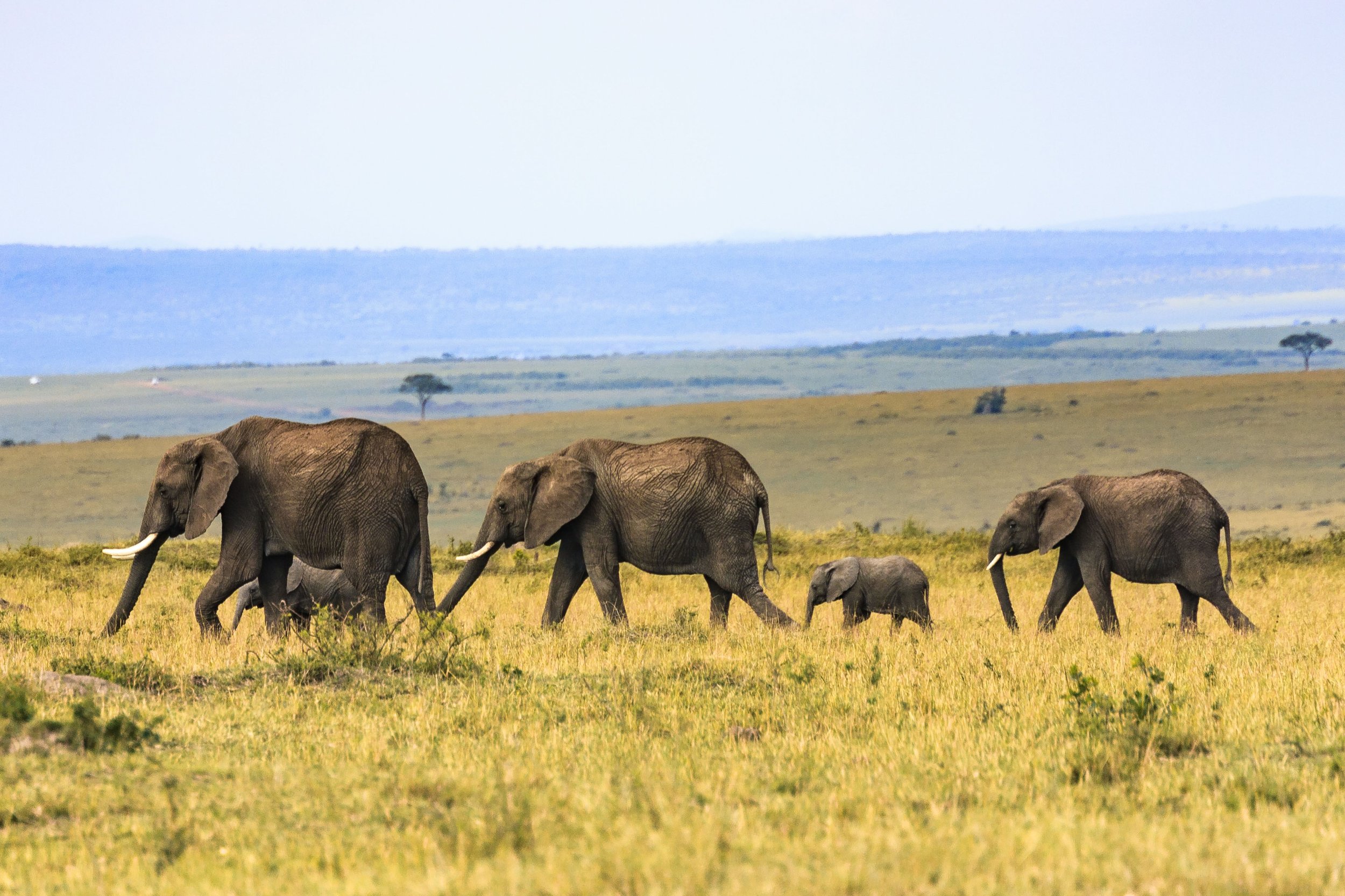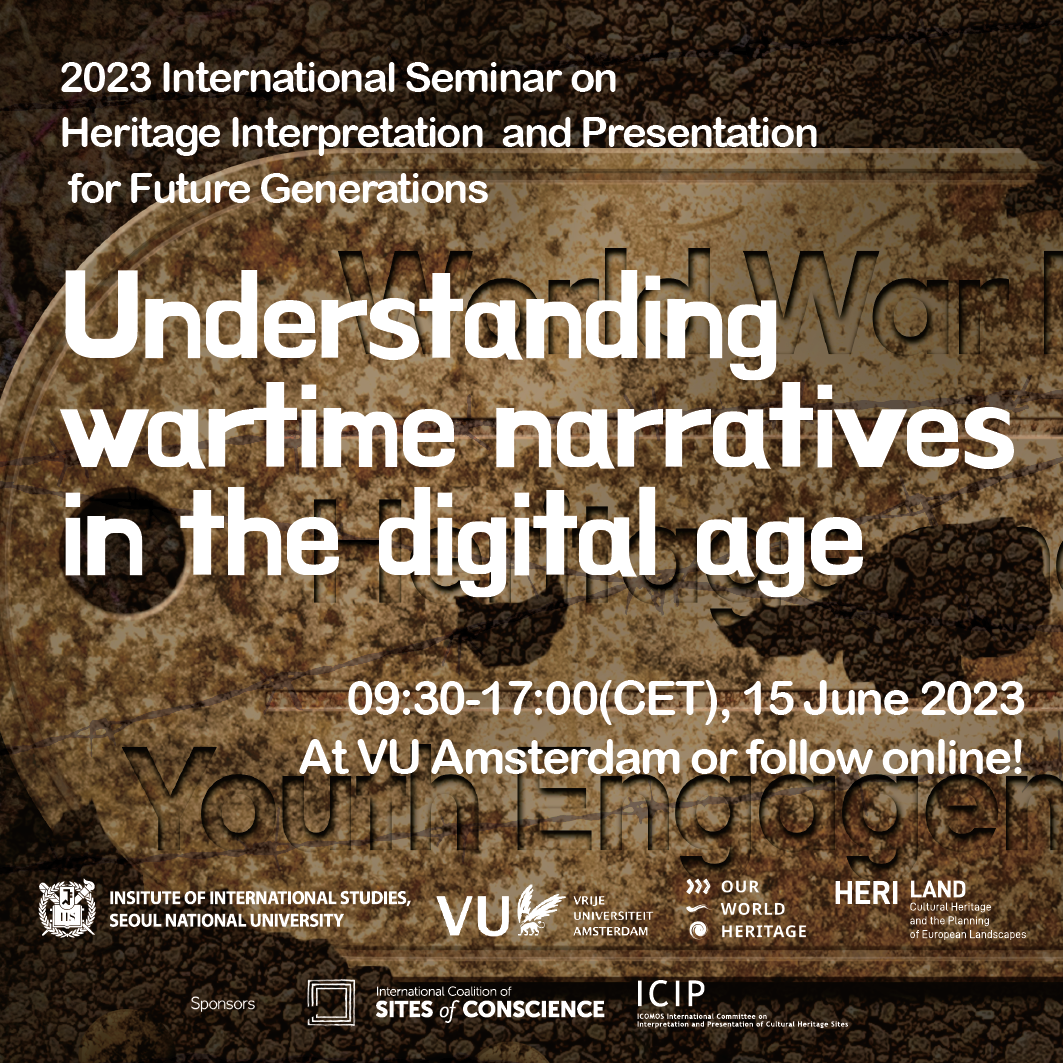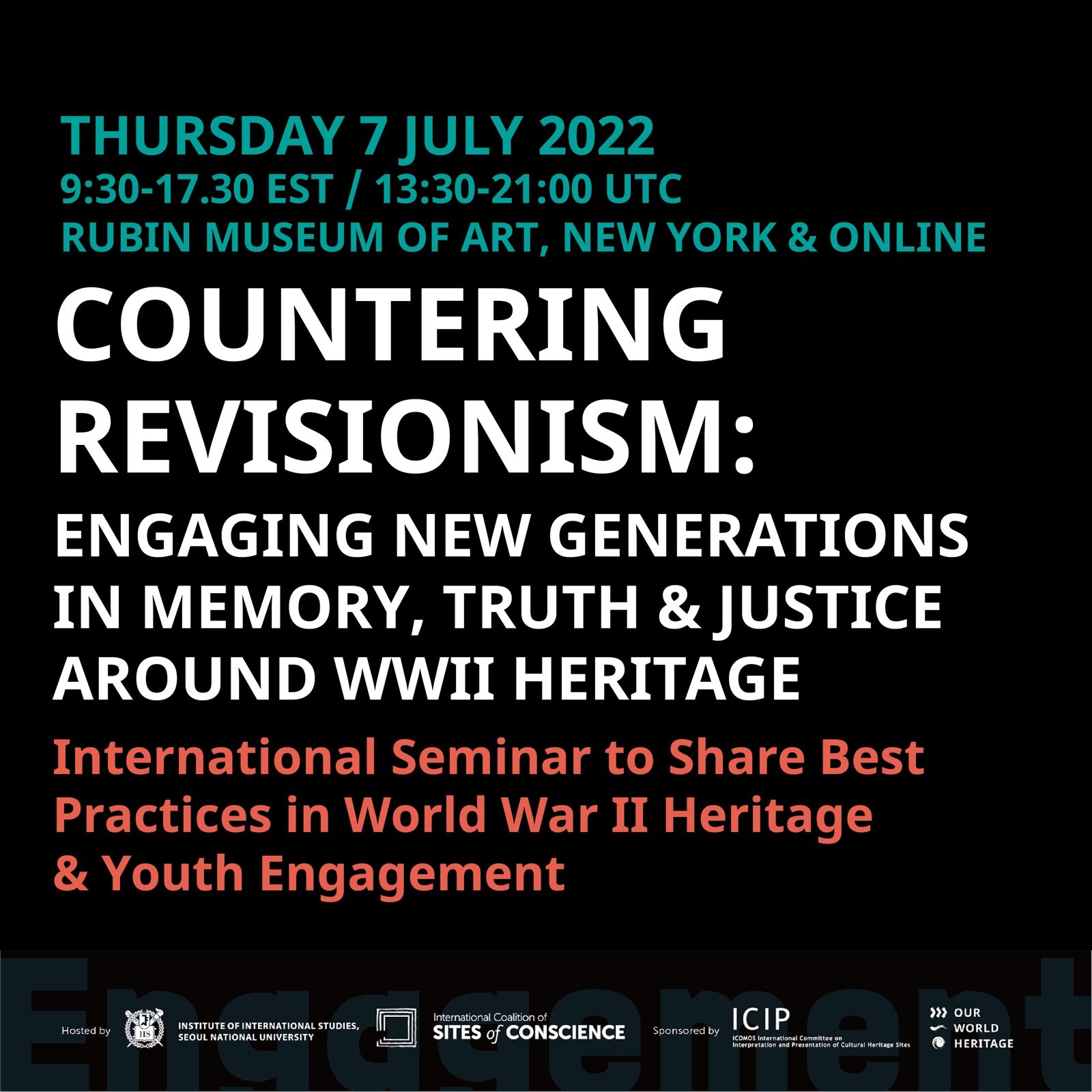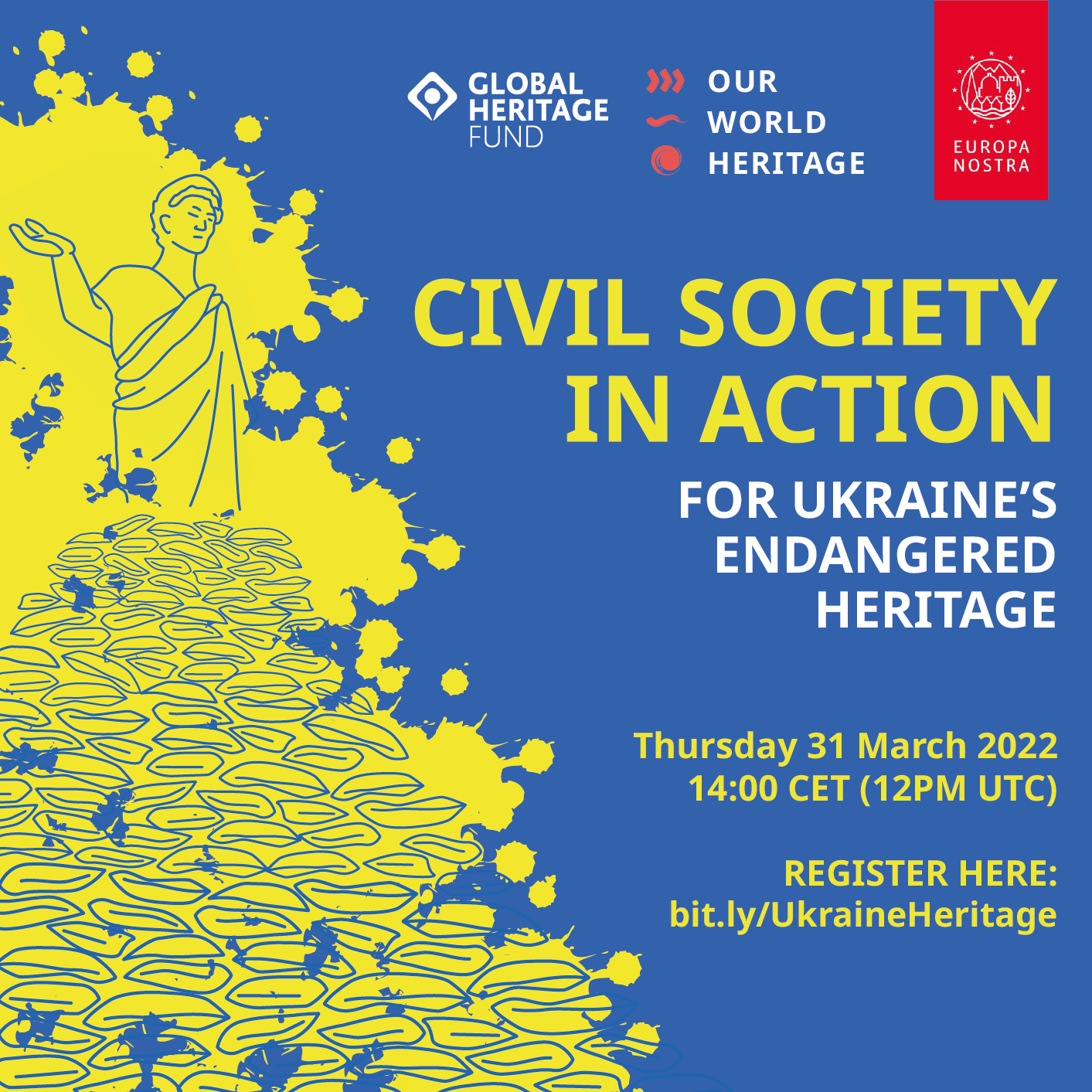
Upcoming events
Past events
This session is a lecture series organised in collaboration with the Romualdo Del Bianco Foundation (Italy) as part of the week-long festival “The World In Florence”. We will record this session, and are in the process of enabling a life stream.
This event is co-organised with the City of Florence, to celebrate and commemorate the 40 years listing of Florence as World Heritage. We are trying to establish a life-stream, so that you can follow the session!
Today, diverse international heritage organizations play fundamental roles in advancing heritage protection, advocacy, mobilization of citizens, and direct support to conservation projects. These groups collaborate in conservation and manage World Heritage places within the World Heritage system. The combined voices of the cultural and natural heritage NGO community can make a difference in protection to address the rapid pace of adaptive change that is urgently needed. The calls for their formal inclusion in the World Heritage system in order to confront and make progress on overcoming the plethora of threats facing our shared global heritage in the decades ahead.
The Convention puts central governments in charge of proposing sites to the World Heritage List and accounting to UNESCO for their conservation. Generally, central governments do not directly manage these heritage places and site management rests in the hands of local planners, local staff, and territorial agencies. While these on the ground managers protect and sustain World Heritage sites every day, they have no status within World Heritage processes. Inclusive heritage management is an urgent need.
Session 2 examines strategies adopted by UNESCO Category 2 Centres and other organizations to develop a diversity of skills for shared governance in protecting, conserving and presenting these sites. Presenters will discuss how they involve multiple stakeholders in their training programs and how they promote a greater role for civil society and non-State actors.
The World Heritage Convention is at the forefront of heritage conservation and represents the technical processes of protection and management with limited community voice. While Article 5 of the Convention directs that heritage should have a role in the daily life of communities, to benefit people and the intergovernmental systems, there are limited roles in the World Heritage process that can be taken up by citizens and communities. As we look forward, the coming decades bring accelerated challenges with climate impacts, civil unrest, diasporas and more. The World Heritage system needs to be reframed to address these diverse challenges, and take up the opportunities to address the pressing issues of the 21st century, with heritage as a strong component of solutions at the community level.
GLOBINAR SESSION 3 focussed in the American regions, and will address the challenges of sustainability, new approaches to future heritage, and the role of civil society.
LA SESIÓN 3 DEL GLOBINAR, centrada en la región de América, abordará el desafío de la sustentabilidad, los nuevos enfoques sobre el patrimonio futuro y el papel de la sociedad civil.
GLOBINAR SESSION 2 focussed in the African and European regions. More information will be posted soon.
We are organizing this globinar to bring together local communities and practitioners to learn from each others practical experiences and actions that come with the conservation and management of natural and cultural heritage.
GLOBINAR SESSION 1 focussed in the Asia Pacific region, will address what natural and cultural heritage means to civil society. We look for the experiences, in particular:
• Learn anecdotes related to community and natural and cultural heritage
• Understand what does natural and cultural heritage mean to communities
• Explore how to engage community and civil society in sharing responsibilities
• The future possibilities for filling the gaps among community, civil society and practitioners.
CUIDADO: este evento começa às 10h00 horário de Brasília (BRT)
PRECAUCIÓN: este evento comienza a las 10h00 hora de Buenos Aires (ART)
The City, Housing and Heritage roundtable aims to reflect on the place of heritage in the contemporary city, in the light of decolonial perspective and deepen the crossings with the issue of housing as a land use, which reveals itself to be preponderant in the life of communities in their different social strata.
CUIDADO: este evento começa às 10h00 horário de Brasília (BRT)
PRECAUCIÓN: este evento comienza a las 10h00 hora de Buenos Aires (ART)
City is heritage. Food is heritage. How is the relationship between the actions, knowledges and experiences of feeding and food production in the city and the valorization of urban heritage? How does food contribute to expand the multiplicity of perspectives and values related to ancestry, interculturality and intersectorality to be bequeathed to future generations?
CUIDADO: este evento começa às 10h00 horário de Brasília (BRT)
PRECAUCIÓN: este evento comienza a las 10h00 hora de Buenos Aires (ART)
Transnational Dialogues is a series of round tables organised throughout 2022, in honour of the 50th anniversary of the UNESCO World Heritage Convention. Article 5 paragraph a. of the convention highlights the value of cultural and natural heritage as part of the life of local communities, which inspired the series of Transnational Dialogues. In a series of roundtables, we will expand on the role of art, food and housing as means incorporate heritage into the daily life, and the life of communities, with a particular focus on decoloniality.
While reflecting on the past fifty years of the World Heritage Convention, international experts in the heritage field will discuss the areas overlooked in the Convention and the role of heritage interpretation to complement those gaps. The panel members are going to discuss not only the fifty-year history of the World Heritage Convention but also the future challenges and the role of heritage interpretation in dealing with those issues.
Representatives of Sites of Conscience and other cultural and heritage generations provide tools to counter historical revisionism. In addition, a roundtable discussion with youth from around the world will explore the importance of war heritage, the power of memory, and the ways that youth can take leadership roles in continuing these vital conversations.
The Climate emergency threatens our landscapes everywhere. In this session speakers will make short presentations about heritage sites in relationships to climate, landscape, community and tourism addressing issues, opportunities for resilience and tools for management. They will provide a variety of viewpoints, observations, and solutions to the impacts of the climate emergency through a landscape lens including culture and nature. This webinar is organized in the context of the International Day for Monuments and Sites.
This webinar intends to provide an opportunity to highlight these chains of support, and to provide a collaborative exchange between civil society organisations and institutions/initiatives in Ukraine to discuss concrete ways of providing short- and medium-term support in their efforts to preserve Ukrainian heritage and culture.





















